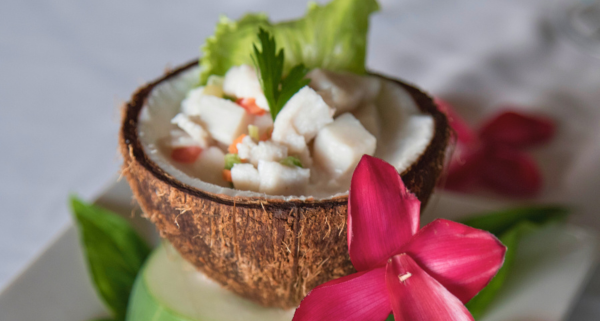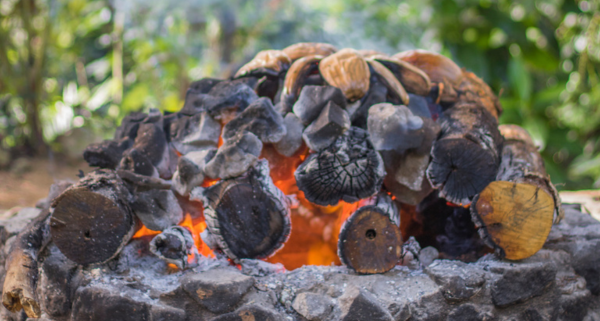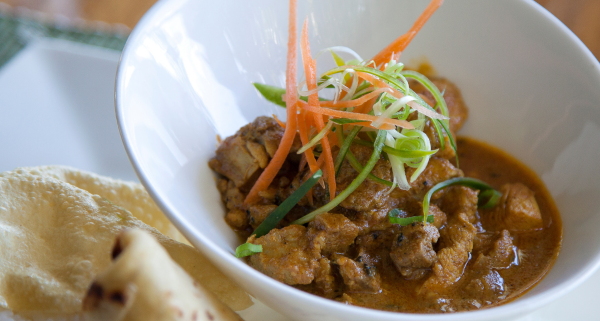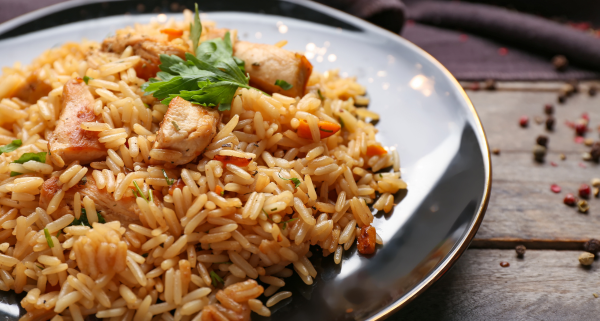Fiji is a tropical paradise known for its stunning landscapes, warm hospitality, and diverse cultures. As you explore the islands, you’ll discover that Fiji is not just a feast for the eyes but also for the taste buds. The nation’s rich cultural diversity, with Fijian and Indo-Fijian cultures playing prominent roles, is beautifully reflected in its cuisine. From traditional Fijian dishes to Indo-Fijian culinary delights, the flavors of Fiji offer a unique and delicious experience. In this blog, we’ll explore five must-try foods that will give you a true taste of Fiji during your visit.
1. Kokoda (Ceviche)
Kokoda (koh-koh-dah) is Fiji’s national dish, offering a refreshing taste of the islands. Similar to ceviche, this dish features freshly caught fish marinated in citrus juice, usually lime or lemon, which “cooks” the fish and gives it a tender texture. What makes Kokoda unique is the addition of creamy coconut milk, balancing the citrussy tang with a rich tropical flavor. It’s often finished with finely chopped capsicum, onion, tomato, cucumber, or a touch of chilli, creating a vibrant and delicious dish that’s perfect for a light meal or appetiser.

2. Lovo (Earth Oven)
Lovo (loh-voh) is a traditional Fijian cooking method that offers a unique and authentic culinary experience. This method involves wrapping various foods in banana or coconut leaves and placing them in an earth oven, or pit, lined with hot stones. Once the food is placed in the pit, it is covered with stones and soil and left to cook for several hours, allowing the heat from the stones to slowly infuse the dishes with a deliciously smoky flavor. The Lovo feast typically includes a variety of meats such as pork, chicken, lamb, and fish, as well as island favorites like palusami—taro leaves cooked in rich coconut milk—and root crops like cassava, dalo, and yams. The result is a mouthwatering array of dishes that are tender, flavorful, and truly representative of Fiji’s rich culinary traditions.

3. Vudi Vakalolo (Plantain)
Vudi Vakalolo (voon-dee vah-kah-loh-loh) is a delightful Fijian dessert made from plantain and coconut milk. Vudi, known elsewhere as plantain, is a larger and starchier variety of banana that’s perfect for cooking. In this traditional dish, the vudi is cooked in creamy coconut milk, then topped with sugar, cinnamon, and cardamom, creating a sweet and aromatic treat. The mixture is stewed until the vudi becomes soft and tender, absorbing the rich flavors of the coconut and spices. Once chilled, Vudi Vakalolo is served as a dessert, offering a deliciously comforting end to any Fijian meal.

4. Goat Curry
Goat curry is a must-try dish that reflects the influence of Fiji’s Indo-Fijian community, the second-largest ethnic group in the country. Unlike traditional Indian curries, Indo-Fijian cuisine offers a unique twist with more subtle flavors and milder spice levels, making it approachable for a wide range of palates. Goat is a popular choice for this dish, known for its tender meat that absorbs the fragrant spices beautifully. Simmered to perfection, this curry delivers a rich, savory experience that’s both comforting and full of flavor—a true representation of the fusion of cultures in Fiji.

5. Palau
Palau is a beloved dish in Fiji that brings people together for special occasions and gatherings. Similar to a rice pilaf, Palau is a fragrant and hearty meal that combines rice with tender meat, usually chicken, cooked in a flavorful blend of spices. The dish often includes vegetables, adding color and texture to the rice, while the aromatic spices such as cumin, coriander, and garam masala infuse every bite with warmth and depth. Palau is typically prepared in large quantities, making it perfect for sharing with family and friends. The slow-cooking process allows the flavors to meld beautifully, resulting in a dish that is both comforting and satisfying—a true staple of Fijian communal dining

.
Whether you’re savoring the zesty flavors of Kokoda, enjoying a traditional Lovo feast, indulging in the sweetness of Vudi Vakalolo, delighting in the rich taste of Goat Curry, or sharing a comforting plate of Palau, Fiji’s diverse cuisine offers something for every palate. These dishes are more than just food—they are a reflection of the island’s rich cultural tapestry and the warmth of its people. At Savasi Island Resort, you can enjoy these authentic Fijian dishes right here during your stay. The resort offers cooking classes where you can learn firsthand how to prepare Kokoda, witness the traditional Lovo preparation on Saturdays, and even have other local delicacies cooked upon request. As you plan your visit to Fiji, be sure to explore these culinary delights and experience the unique flavors that make this island paradise truly unforgettable.




